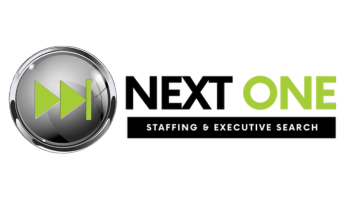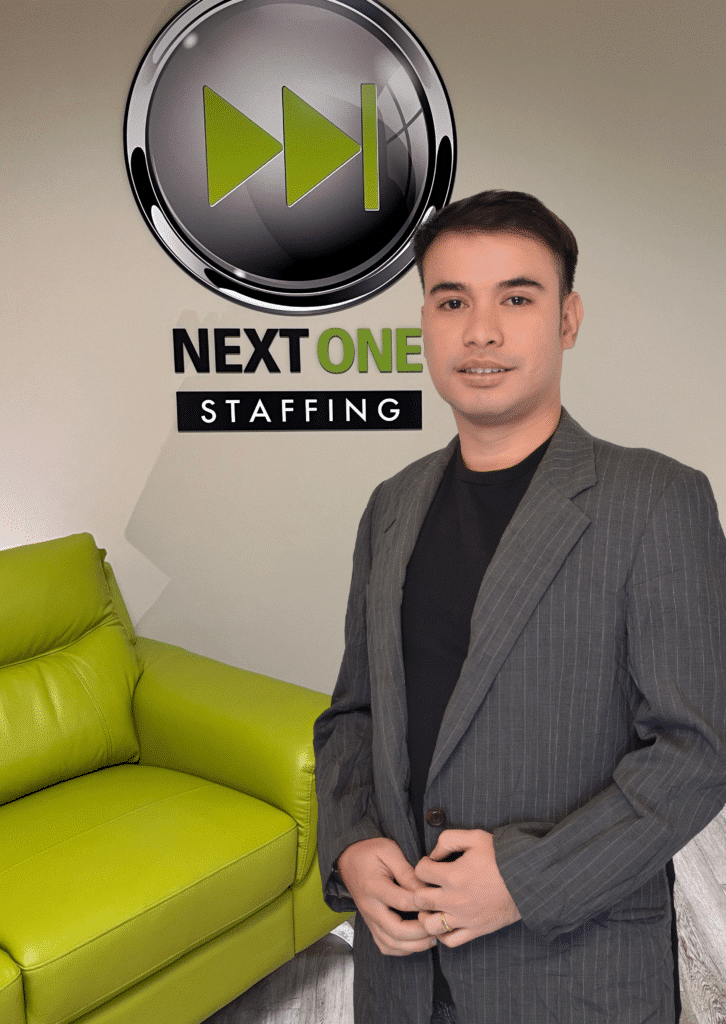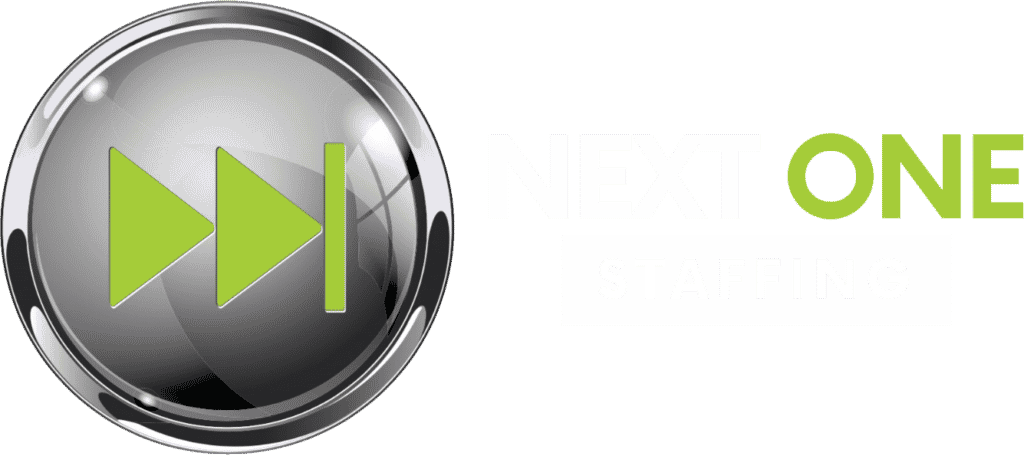
Why did you apply for this position? It’s one of the most common interview questions, yet many candidates stumble when answering it. As recruitment specialists at Next One Staffing who connect top talent with leading businesses daily, we’ve seen firsthand how the right answer can make or break an interview.
This comprehensive guide reveals exactly what hiring managers want to hear, provides proven answer templates, and shows you how to avoid the critical mistakes that cost candidates job offers.
Why Employers Ask “Why Did You Apply for This Position?”
Understanding the psychology behind this question is crucial for crafting a winning response. Hiring managers aren’t asking out of curiosity—they’re evaluating multiple factors that determine your fit for the role.
They Want to Assess Your Genuine Interest
Employers can immediately distinguish between candidates who genuinely want their specific role versus those applying to every opening they find. Companies invest significant resources in recruitment and onboarding, making it essential to hire someone truly committed to the position.
When you demonstrate authentic interest in the specific role and company, you signal that you’ve thoughtfully considered your career trajectory rather than desperately searching for any available position.
They’re Testing Your Research and Preparation
Your answer reveals whether you’ve thoroughly researched the company and understand what the role entails. Candidates who arrive unprepared or lack knowledge about the organization demonstrate either poor judgment or lack of genuine interest—both red flags for employers.
Hiring managers expect you to know their company’s mission, values, recent achievements, and industry reputation. This research demonstrates professionalism and commitment that extends beyond simply wanting a paycheck.
They’re Evaluating Cultural Alignment
Companies increasingly prioritize cultural fit alongside skills and experience. Your motivation for applying provides insight into your values, work style, and whether you’ll thrive within their organizational culture.
Employers seek candidates whose professional goals and values align with the company’s mission. This alignment reduces turnover, increases job satisfaction, and creates more cohesive teams that work effectively together.
They’re Measuring Long-Term Commitment
High employee turnover costs companies thousands of dollars in recruiting, hiring, and training expenses. By understanding why you applied, employers can gauge whether you’re likely to stay with the organization long enough to provide meaningful return on their investment.
Candidates who articulate clear career goals that align with the company’s growth trajectory are more likely to remain engaged and committed over time.
How to Answer “Why Did You Apply for This Position?” Successfully
Crafting an effective answer requires strategic preparation that connects your background, skills, and career goals with the employer’s needs. Follow this proven framework to create responses that resonate with hiring managers.
Step 1: Align Your Career Goals with Company Objectives
The most compelling answers demonstrate how the position fits perfectly within your broader career trajectory. Identify specific aspects of the role that align with your professional development goals and articulate this connection clearly.
Think about the skills you want to develop, the experience you need to advance, and how this particular role provides those opportunities. Show hiring managers that you’ve thoughtfully considered where this position fits in your career journey.
For example, if you’re seeking to develop leadership skills and the role offers team management responsibilities, explicitly connect these dots. This demonstrates strategic career planning rather than random job hopping.
Step 2: Conduct Thorough Company and Role Research
Before your interview, invest time researching the company comprehensively. Visit their website, read recent press releases, review their social media presence, and understand their market position within the industry.
Pay attention to:
- Company mission and core values
- Recent achievements, projects, or product launches
- Industry challenges they’re addressing
- Company culture indicators from employee reviews
- Growth trajectory and future plans
When answering why you applied, reference specific details that resonated with you. Rather than generic statements like “I admire your company,” say something like “I was impressed by your recent expansion into sustainable manufacturing, which aligns with my background in environmental engineering.”
Step 3: Connect Your Skills and Experience to Role Requirements
Demonstrate that you’re not just interested—you’re qualified. Analyze the job description carefully and identify the key skills, experiences, and qualifications the employer prioritizes.
In your answer, highlight 2-3 specific ways your background makes you uniquely suited for this role. Use concrete examples from your work history that demonstrate relevant achievements or expertise.
This approach accomplishes two goals simultaneously: explaining why you applied and showcasing why you’re an excellent candidate. You’re essentially providing a mini-pitch that reinforces your value proposition.
Step 4: Show Genuine Enthusiasm and Passion
Authentic enthusiasm is contagious and memorable. Hiring managers interview numerous candidates, so genuine passion for the role and industry helps you stand out from equally qualified competitors.
Share what specifically excites you about the work you’d be doing. If you’re passionate about the industry, explain why. If specific projects or initiatives mentioned in the job description energize you, say so.
However, ensure your enthusiasm feels authentic rather than rehearsed. Forced excitement is transparent and can actually work against you. Connect your passion to real experiences or interests that led you to this field.
Step 5: Tie Everything Together with a Strong Conclusion
After explaining your interest, alignment, and qualifications, conclude by synthesizing these elements into a cohesive narrative. Your closing statement should reinforce why this opportunity represents the ideal next step in your career.
A strong conclusion might sound like: “That’s why I applied for this position—it offers the perfect opportunity to leverage my five years of experience in data analytics while developing the machine learning skills I’ve been eager to build. Given my track record of increasing data accuracy by 40% in my current role, I’m confident I can contribute immediately while growing in areas that excite me professionally.”
This approach demonstrates confidence, clarity about your goals, and understanding of how you’ll add value from day one.
Pro Tip: End with a Strategic Question
Transform the interview dynamic by concluding your answer with a thoughtful question. This technique makes the conversation more collaborative and demonstrates your genuine interest in understanding the role deeply.
Effective follow-up questions include:
- “What improvements or changes do you hope a new hire will bring to this position?”
- “What distinguishes your top performers in this role from average performers?”
- “What does success look like in this position after the first 90 days?”
This strategy reduces interview stress, creates more natural conversation flow, and positions you as a selective candidate evaluating mutual fit rather than desperately seeking any job offer.

Proven Answer Examples for Different Roles
Real-world examples help you understand how to adapt the framework to your specific situation. Here are industry-specific answers that have successfully impressed hiring managers.
Digital Marketing Manager Example
“I’ve spent the past five years building my career in digital marketing, focusing primarily on social media strategy and paid advertising campaigns. I applied for this position because the job description perfectly matches the skills I want to continue developing—particularly the emphasis on multi-channel campaign management and marketing analytics.
What really caught my attention was your company’s innovative approach to influencer partnerships, which I read about in your recent campaign case study. This aligns perfectly with my experience managing a $500K influencer marketing budget that generated 200% ROI for my current employer.
I’m excited about the opportunity to bring my proven track record in digital campaign management while learning from a team that’s clearly pushing boundaries in the industry. Given my background, I’d be able to contribute immediately while growing in areas that align with my long-term career goals.”
Project Management Professional Example
“In my next role, I want to continue advancing my project management expertise while taking on increased leadership responsibilities. When I reviewed your job description, the emphasis on cross-functional team leadership and complex project coordination immediately stood out as exactly what I’ve been seeking.
I’ve spent the past four years managing enterprise software implementation projects with budgets exceeding $2M and teams of 10+ people. I’m particularly drawn to your company’s agile methodology approach, which I’ve successfully implemented in my current organization, reducing project delivery times by 30%.
This role represents the ideal next step in my career—combining the project management complexity I thrive in with the leadership growth opportunities I’m ready for. What specific challenges is the team currently facing that you’re hoping a new project manager will help address?”
Healthcare Professional Example
“As a registered nurse with seven years of intensive care experience, I’ve developed strong clinical skills in high-pressure environments. However, I’ve been seeking a role that offers a better balance between technical expertise and patient relationship building.
Your posting for an outpatient care coordinator caught my attention because it requires both the advanced clinical skills I’ve developed and offers more time for the patient education and support that I find most fulfilling. I noticed your facility recently received recognition for patient satisfaction scores, which tells me this value of quality patient care is central to your culture.
My ICU background has prepared me to handle medical complexity and make quick critical decisions, while this role would allow me to develop the longitudinal patient care relationships I’m passionate about. It seems like an ideal match for both what I offer and what I’m seeking in my next position.”
Career Transition Example
“After eight years in corporate finance, I’ve realized my true passion lies in sustainability and environmental impact. Your posting for a sustainability coordinator resonated deeply with me because it represents the intersection of my analytical skills and my values.
While I’m transitioning industries, my background is highly relevant—I’ve managed $5M budgets, conducted complex data analysis for strategic decision-making, and led cross-functional initiatives. These transferable skills directly apply to managing sustainability programs and tracking environmental metrics.
What particularly attracted me to your organization is your commitment to becoming carbon-neutral by 2030. I’ve been following your progress, and I’m energized by the opportunity to apply my financial analysis expertise to support these ambitious sustainability goals. I bring both the technical skills needed and genuine passion for the mission.”
Critical Mistakes That Sabotage Your Answer
Understanding what not to do is equally important as knowing the right approach. Avoid these common pitfalls that immediately raise red flags with hiring managers.

Appearing Desperate or Unfocused
Never suggest you’re applying to every available position or that you’d take any job. Statements like “I’m just looking for any opportunity” or “I need a job quickly” signal desperation and lack of career direction.
Employers want candidates who specifically chose their company and role after thoughtful consideration. Even if you’re urgently job searching, your answer should demonstrate selectivity and purposeful career planning.
Showing Lack of Research or Preparation
Arriving at an interview without basic knowledge about the company is inexcusable in the digital age. If you cannot articulate what the company does, its values, or recent initiatives, you’re communicating that this opportunity isn’t important enough to warrant preparation.
This mistake suggests you’ll bring the same lack of thoroughness to the actual job, making it one of the fastest ways to eliminate yourself from consideration.
Focusing Solely on Personal Benefits
While compensation, benefits, and work-life balance matter, leading with these factors makes you appear self-centered rather than value-focused. Answers like “I need better pay” or “The benefits package attracted me” miss the opportunity to demonstrate how you’ll contribute.
Instead, focus on what you’ll bring to the role and how the position aligns with your professional growth. You can certainly consider these factors in your decision-making, but they shouldn’t be the centerpiece of your interview answer.
Badmouthing Previous or Current Employers
Negative comments about past employers, even if justified, reflect poorly on you. Hiring managers worry that you’ll eventually speak the same way about their company.
Frame your reasons for seeking new opportunities positively. Focus on what you want to gain rather than what you’re trying to escape. For example, instead of “My current company has terrible management,” say “I’m seeking an organization with more collaborative leadership that values employee input.”
Giving Vague or Uncertain Responses
Responses like “I’m not really sure” or “It seemed interesting” demonstrate lack of preparation and commitment. Employers need confidence that you’ve thoughtfully considered this decision and are genuinely motivated to succeed in the role.
Even if you applied somewhat spontaneously, your interview answer should present a clear, logical rationale for your interest that demonstrates you’ve since researched and developed genuine enthusiasm for the opportunity.
Missing the Opportunity to Showcase Your Fit
Some candidates answer the question without connecting their background to the role’s requirements. This represents a missed opportunity to reinforce why you’re an excellent candidate.
Every interview answer should strengthen your candidacy. When explaining why you applied, weave in relevant skills, experiences, and achievements that demonstrate you’re not just interested—you’re qualified and will add immediate value.
How Next One Staffing Helps Candidates Succeed
At Next One Staffing, we understand both sides of the hiring equation. We work with talented professionals to prepare them for interviews while helping businesses identify candidates who are genuinely motivated and aligned with their organizational needs.
Our recruitment specialists coach candidates on answering challenging interview questions, provide insider perspective on what hiring managers really want to hear, and help match professionals with opportunities where they’ll truly thrive.
Whether you’re actively job searching or exploring new opportunities, having a recruitment partner who understands your goals and advocates for your success can make all the difference in finding the right role with the right company.
Final Thoughts: Practice Makes Perfect
Mastering your answer to “Why did you apply for this position?” requires preparation, self-reflection, and practice. The most successful candidates don’t wing this response—they thoughtfully craft answers that authentically represent their interest while strategically highlighting their qualifications.
Before your next interview, write out your answer using the framework provided in this guide. Practice delivering it until it sounds natural rather than rehearsed. Tailor it specifically to each company and role, incorporating research about the organization.
Remember, this question is your opportunity to demonstrate that you’re not just any candidate—you’re the right candidate who has thoughtfully chosen this company, understands the role, and brings the perfect combination of skills, experience, and motivation to excel.
With proper preparation and a strategic approach, you’ll answer this common interview question with confidence, making a memorable impression that moves you closer to securing the job offer.
👉 Learn more about our staffing solutions for businesses.
👉 Discover how we help companies find the best talent for the future of work
























